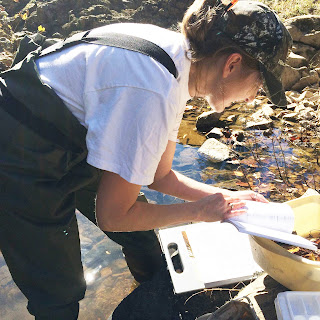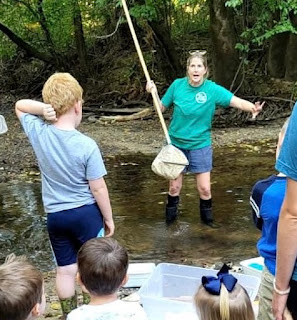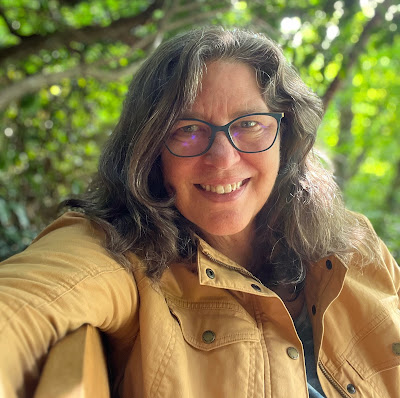Marguerite Bishop, an instructor at Gaston College recently completed her NC Environmental Education Certification. Marguerite teaches general biology to science majors and non-majors. She also volunteers with local elementary schools to provide STEM-themed outreach.
Marguerite says that her favorite part of the certification
program was visiting state parks with her family. “My kids were often tagging
along when I was completing field experiences for my outdoor hours. We all have
developed a greater love for salamanders, plants, the iNaturalist App and
exploring through this process.”
When asked about an experience that stood out to her, she says it’s difficult to choose one. “All of the different experiences had value and have added to my knowledge of the natural world and how to introduce, teach and engage others with the world that surrounds them.”
For her community partnership project, she designed and
installed a learning garden and outdoor classroom at Nashville Elementary
School in Nash County. “I learned how to build a retaining wall and install
fencing. I also gained an appreciation for a tractor and an auger so that
postholes don't have to be hand dug. I think what made this project even more
special is that it was accomplished during the beginning of COVID when everyone
was so nervous and scared. It was great to have an outlet during this time that
my kids could also help with to get us through a period of real uncertainty and
feel like we were doing something good while living through this dark period.”
Marguerite says that participating in the program changed
her approach to teaching. “As a biology instructor I often take my students
outside and have them interact with the natural world to observe, question and analyze.
Through this process I have learned about barriers that people might have to
the outdoors and how to help guide students through these interactions to help
make these experiences easier.”
She also says the certification changed the way she views environmental issues. “Through the EE certification program, I think about environmental issues with more hope. The program opened my eyes to a lot of people and programs that are trying to raise awareness of and mitigate the impact of environmental issues. I didn't know the community was so big before the certification program.”
The North Carolina Environmental Education Certification Program is administered by the N.C. Office of Environmental Education and Public Affairs in partnership with organizations and agencies across North Carolina. https://www.eenorthcarolina.org/certification







